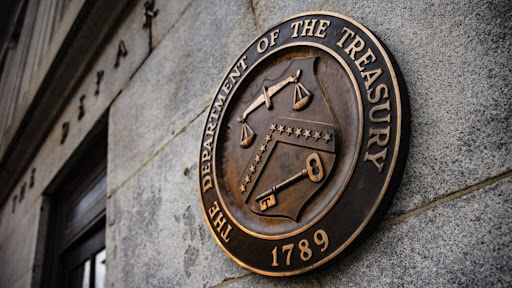The Financial Crimes Enforcement Network of the U.S. Department of the Treasury (FinCEN) issued orders identifying CI Banco, Intercam, and Vector Casa de Bolsa as a “primary money laundering concern in connection with illicit opioid trafficking.” As a consequence, they are prohibited from carrying out certain fund transfers in the United States, measures that will take effect within 21 days counted from last June 25. The final deadline expires on July 15, counted as calendar days.
According to what is described in the FinCEN orders, the designated institutions are prohibited from conducting fund transfers to or from CIBanco, Intercam, or Vector, or to or from any convertible virtual currency account or address, managed by or on their behalf, in U.S. dollar accounts in the United States.
However, the measure goes further because by linking the names of the Mexican financial institutions to criminal groups—in this case drug cartels recently classified as “terrorist groups” under U.S. law—the prohibitions also extend to all clients of the institutions, whether individuals or legal entities, as well as any national or foreign entity.
“It is without a doubt a complex situation and a major risk for the institutions once the 21-day period expires, unless during this period there are negotiations and actions by those involved as well as by the Mexican authorities to avoid the application of the sanctions as of next July 15,” said in a radio interview Michel Levien, an attorney specializing in anti-corruption, anti-money laundering, and transparency.
According to Levien, this situation “is serious due to the high integration of the financial systems of both countries; one could not conceive of the activity of a Mexican bank or brokerage house being unable to make transfers to the U.S. market.”
In the short term, those who have accounts with these three institutions are not affected except if they are based in the United States or carry out transactions through any U.S. bank or financial institution, according to the expert.
But in the medium term, clients of these institutions will have to be very attentive to the legal proceedings (lawsuits) that may be filed both in Mexico and the United States, because those proceedings can impose very serious sanctions including fines, forfeiture (seizing of obtained profits), suspension of activities, and even dissolution (closure).
“A problem is that these institutions, especially CI Banco, have many clients in the export sector; if it were prevented from making transfers to the U.S. market, there would be severe repercussions for its operations,” commented Maribel Vázquez, founding partner of GMC360, a Mexican consulting and auditing firm with over a decade of experience in the financial sector, regulatory compliance, and money laundering prevention.
“In the case of CI Banco and Intercam, their beginnings as currency exchange houses allowed them to evolve over time to become banks with clients in the country’s foreign trade sector, which is a large part of their core business. Therefore, the prohibitions of the U.S. Department of the Treasury, if they are ultimately enforced, directly impact the companies’ business,” she explained.
“Once the deadline arrives, and even already, U.S. banks cannot do any transactions with these three Mexican institutions, except, for the moment, if those banks have offices in the United States,” explained Salvador Mejía, partner at Asimetrics.
“But then another problem will arise, something called ‘de-risking’; in my recent conversations with anti-money laundering directors of banks in the U.S., all were emphatic that anything that smells, looks like, sounds like, or is linked to these three institutions—they will not want any relationships. In other words, all types of relationships with them are over. This of course can also affect the individuals and legal entities doing business with Vector, CI Banco, and Intercam. This is very serious,” he stated.
“I find it very serious; the coming days will be essential for the future of the banks and the brokerage house involved, and also for the country’s financial system.”
Experts agreed that the 21-day route is what follows and is high risk because, although these are the first managerial interventions by the Mexican authorities that do not stem from solvency risks, the future of the institutions is indeed at stake due to the potential sanctions to which they could be subject in the U.S. market.
There would indeed be an impact on the institutions’ operations in the United States, whether or not they have subsidiaries in that country; their activity there would be practically eliminated, and no client could receive or transfer money from accounts related to these three Mexican financial institutions.




 By Fórmate a Fondo
By Fórmate a Fondo